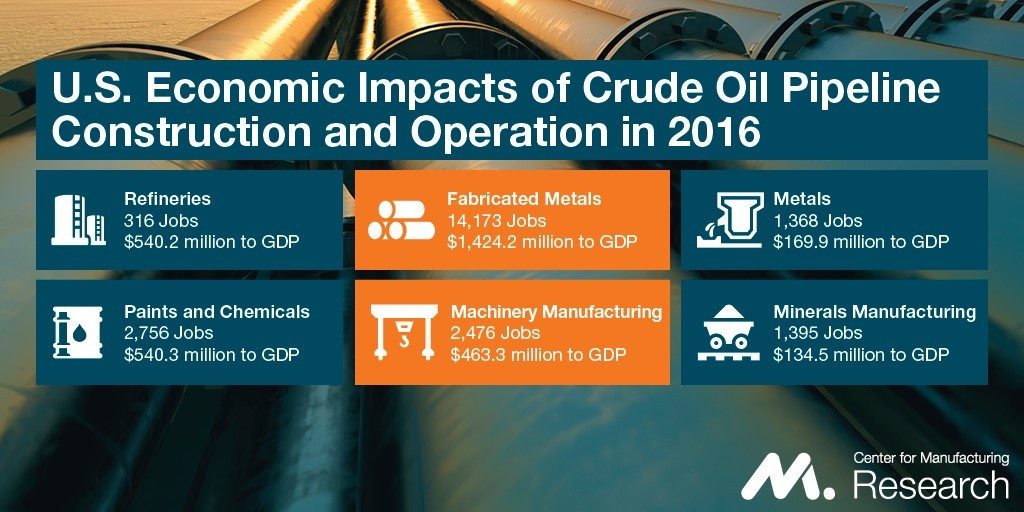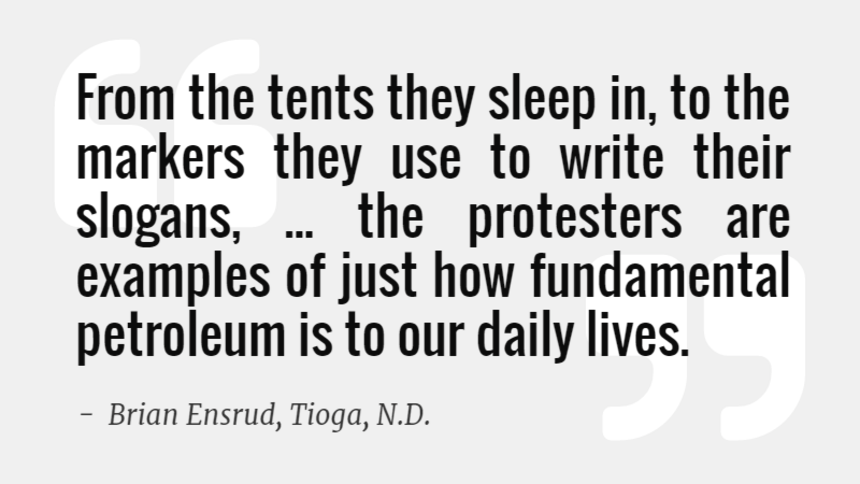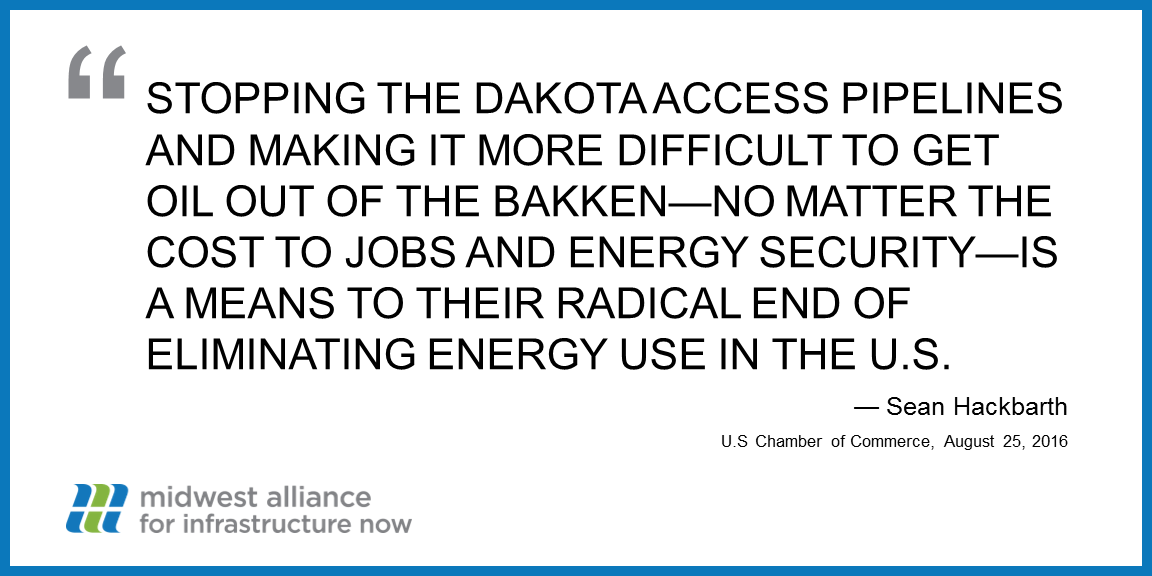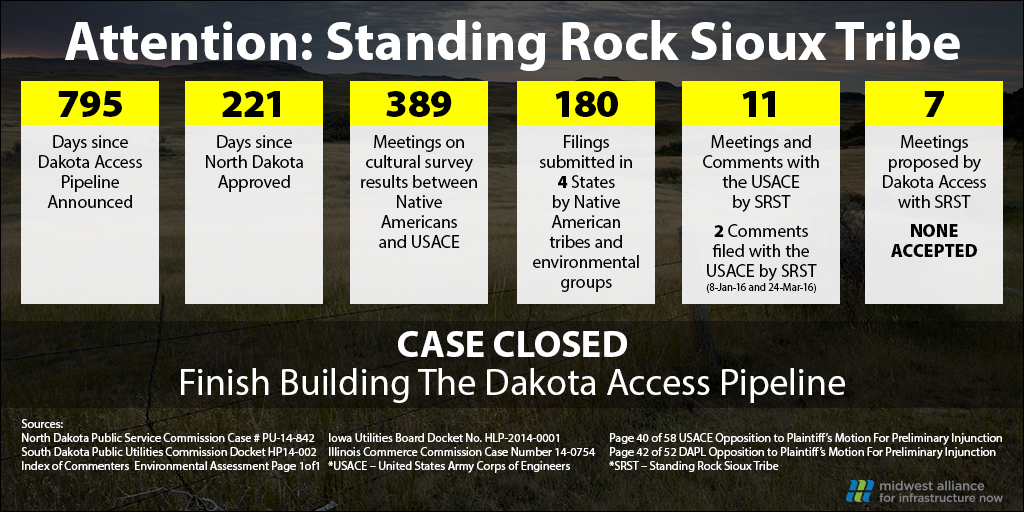Evidence of a growing rift among Sioux Tribe members on the Dakota Access Pipeline is emerging, with some taking a more tempered approach to the issue than their counterparts’ chaining themselves to construction equipment.
Roquel Gourneau, an enrolled member of the Lower Brule Sioux Tribe in central South Dakota, recently shared a blog post in which she appeals to her fellow tribesmen and women for compromise in negotiations between the SRST and Dakota Access, countering the hardline rhetoric of other Native American opponents. Ms. Gourneau’s stance marks a sharp divergence from this all-out opposition, which itself has demonstrated little in the way of strategy or achievable goals. This inner turmoil – developing months after the tribes had ample opportunity to provide input on Dakota Access – is yet another indication of the Sioux Tribe’s lack of cohesive approach to the project.
In her post, Ms. Gorneau acknowledges the safety of underground pipelines, the importance of oil in producing everyday commodities, and the need for feasible requests on the part of the Sioux Tribe. Read below for some salient excerpts:
These existing pipelines were constructed individually over a long period of time and have been in operation almost daily, so why weren’t [other] pipelines met with such a strong, united resistance?
Although 99.99% of all tank cars containing crude oil arrive at their destination safely and less than one percent of derailments involve crude oil, all of the railways … clearly cross a large amount of major fresh water sources. A derailment near any groundwater source would surely be just as detrimental as a pipeline leak, if not more volatile when sparks and other above ground dangers are in play as well.
Now we know that it is highly unlikely that we as Native Americans and environmentalists are going to go as far as sell our vehicles, homes, material possessions and denounce any items derived from petroleum. Thus begs the question: what then, DO we want?
If they absolutely need to build this one specific pipeline, we should be able to offer some major concerns and feasible requests.
We know it isn’t realistic to expect that fracking, drilling, and transporting crude be completely stopped, but let’s at least make some reasonable, realistic requests to truly improve the bigger picture.
While these points certainly demonstrate a degree of reasonableness, Ms. Gourneau goes on to encourage her readers to “demand that [Dakota Access] avoid crossing the Missouri River at all, if possible.” Even a cursory understanding of geography would lead her to understand that it is, in fact, impossible to avoid such a huge obstacle. We’re happy to provide the below map for consultation:

Geographic knowledge aside – John Lytle, President of the First American Alliance and member of the Rosebud Sioux Tribe, replied to Ms. Gourneau’s post, agreeing with her comments and underscoring the fact that the SRST protests lack a decided strategy or end-goal:
The purpose of a protest is to call attention to a particular cause or issue that needs to be addressed. With all the coverage the movement has now done that. OK… Now what? … I am not sure that there is a specific strategy to take the next step.
As Ms. Gourneau concludes, “I strongly feel that it is time we take a step back, and truly consider our positions in the battle against large oil transportation companies and similar industries.” Her reasoned arguments serve as a breath of fresh air in midst of these noisy, seemingly directionless protests. This could serve as a high watermark in the movement, pointing to a larger split among the Native American community on the Dakota Access protests. Hopefully Ms. Gourneau’s more thought-out comments resonate with her less reasoning fellow tribe members.
Read the full blog post here.







 Hundreds of union members
Hundreds of union members